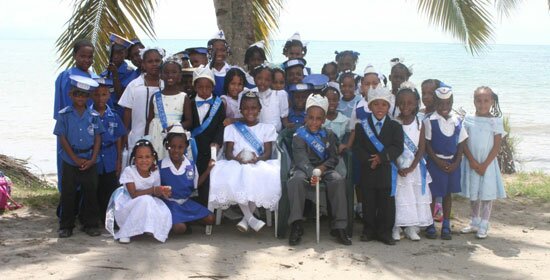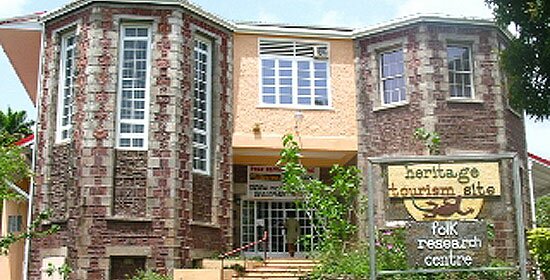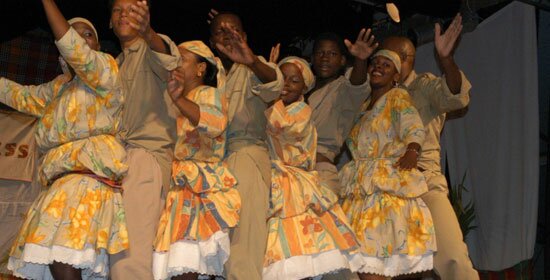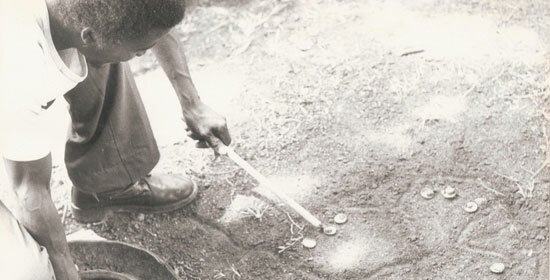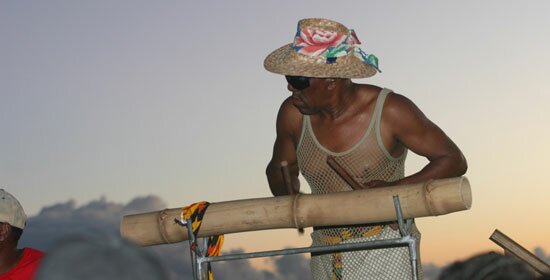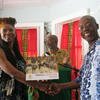St Lucia studies Conference 2004
The Inaugural St.Lucia Studies Conference formed part of the Center's 30th anniversary celebrations and the 25th anniversary of St.Lucia's Independence.
The objective of the conference was to highlight the importance of research in the process of development of the island and to provide an avenue for the presentation of the research to the public.
The conference ran from the 29th March to 31st March 2004. As such, the theme for the conference was "Research, A Critical Path to Development".
The conference was open to any research presentations with a special focus on St.Lucia. A call for papers went out locally and internationally. Presentations were invited in the disciplines of History, Linguistics, the Arts, Culture, and Rural Development. The response was very good as over twenty proposals were received from local and foreign based researchers and academics. Topics ranged from the pre-history of St. Lucia to the architecture of St. Lucia.
On Sunday March 28th, the Conference opened with a ceremony and reception held at the Head Quarters of the Folk Research Centre at Mt. Pleasant. The Keynote address was delivered by Her Excellency the Governor General Dame Pearlette Louisy. In her address Her Excellency underscored the importance of research in informing the process of development of every nation. Her Excellency also lamented the fact that the Sir Arthur Lewis Community College, the only tertiary level institution in the country does not place high priority on research.
The feature presentation for the evening came from:
- Dr. Manfred Kremser of the Institut fur Volkekunde (Institute of Ethnology, Social and Cultural Anthropology) of the University of Austria. Dr. Kremser presented a paper entitled "St.Lucia Kélé in the Context of Other African-Derived Religious Traditions in the Caribbean." His research focused on African religions in Africa and the Diaspora. Dr. Kremser has worked for decades with the Folk Research Centre on documenting the Kélé religion in the Fond Assau area. Sadly though, the practice of Kélé has died with the passing of the last high priest. This presentation highlighted the collaboration and relationship between the Folk Research Center and the University of Austria.
On the Monday 29th 2004, the theme of the session was Education and the Arts.
- The first paper was presented by Royston Emmanuel on "Globalization and Education Policy in St. Lucia".
- This was followed by Eva Donally's presentation which looked at the occupational aspirations of rural primary school students and Andy Joseph's which looked at student study for the Common Entrance Examination.
- The sessions led to very lively debate as many of the stake holders in the field of education were present.
- The mid-morning session continued with education but with a focus on linguistics. The whole morning's session was crowned with a unique presentation by Msgr. Dr. Patrick Anthony on St. Lucian philosophy, where he highlighted the work of St. Lucian artists Dunstan St. Omer and Cedric George to point to the shaping of that philosophy.
- The conference continued in the afternoon with presentations on the work of St. Lucian writer Garth St. Omer by Dr .Antonia MacDonald-Smythe
- Nobel Laureate Derek Walcott by Jane King-Hippolyte.
- The evening session started with a presentation by Ms. Sharon Trezelle entitled "Dependency in a Banana Producing Community in Rural St Lucia".
- This was followed by Laurent Jn Pierre's presentation on "Ethno Botany, Ecology and the Kwéyol Traditions in St.Lucia".
- Embert Charles presented on the African influences on St. Lucian Culture with special focus on the Solo.
On Tuesday March 30th , the conference resumed with:
- a presentation on the development of St. Lucian theatre by Kendel Hippolyte
- a Presentation on 'St. Lucian Vernacular Architecture' by Augustin Poyotte
- The morning session ended with a look at Health Care issues facing Street Drug Users in the city of .
- Gerhard Tronka and Marian Negrete of the University of Vienna opened the afternoon session with a presentation on preliminary results of the Austrian Archaeological excavations done at the Pre-Columbian site at Pointe de Caille in St. Lucia. This presentation showed the results of the collaboration between the University and the Archaeological and Historical Society of St. Lucia. This excavation took place between 1983 and 1986.
The evening session of the second day saw:
- A presentation by Dr. Hazel Simmons-McDonald on the "Afrogenesis of St. Lucian French Creole Proverbs". This session generated a great deal of discussion among those in the audience familiar with the proverbs.
- The leg of the conference came to a close with a very animated panel discussion on 'Research: A Critical Path to St.Lucia's Development'. The panelists were Mr. Victor Poyotte, Dr. Antonia MacDonald Smythe, Ms. Virgina Albert, Dr. Hazel Simmons McDonald and Mr. Gregor Williams.
They pointed to the failure of a number of institutions which had been set up to promote research, but which, as the floor concurred, had failed in their mandate to do so. The crucial role which research should play in the island's development and in policy making was also highlighted. The issue of the difference in perspective of the local researcher vis à vis that of the foreign researcher in conducting local research was debated.
The final leg of the conference was held on Wednesday, 31st March at the St. Isidore Hall in Soufriere:
- This was done in collaboration with the Soufriere Action Theatre. This leg of the conference was slated to start at 6 pm but instead started a few hours later. The conference opened with a drumming and chanting session by members of the Soufriere Action Theatre.
- Presenters in Soufriere were Dr. Mansfred Kremser and Mr. Laurent Jn Pierre. Dr. Kremser did a repeat of his presentation done earlier in the conference and Mr. Jn Pierre, a native of the town, presented "Weaving the Natty-Dreadlocks Poly-consciousness into Caribbean Independence". This presentation was well received especially by the Rastafarian folk in the audience.
This inaugural conference proved to be very successful in attracting researchers and academics. The wide variety of presentations was testament to that. It provided a forum for the presentation of research which had been done on Saint Lucia, which, otherwise, would not have been presented to the local public.
FRC Research programme
The Inaugural St.Lucia Studies Conference formed part of the Center's 30th anniversary...
The Folk Research Centre
In association with the Cultural Development Foundation
Presents the...





